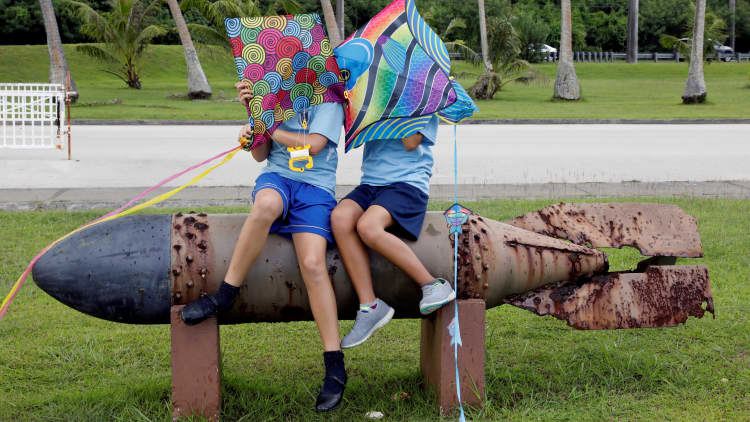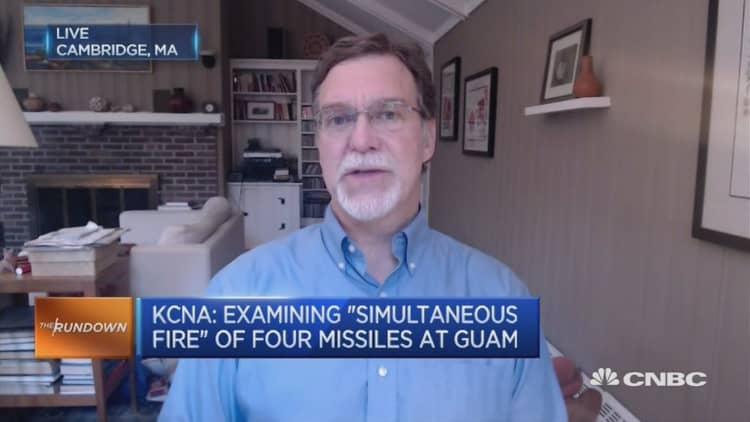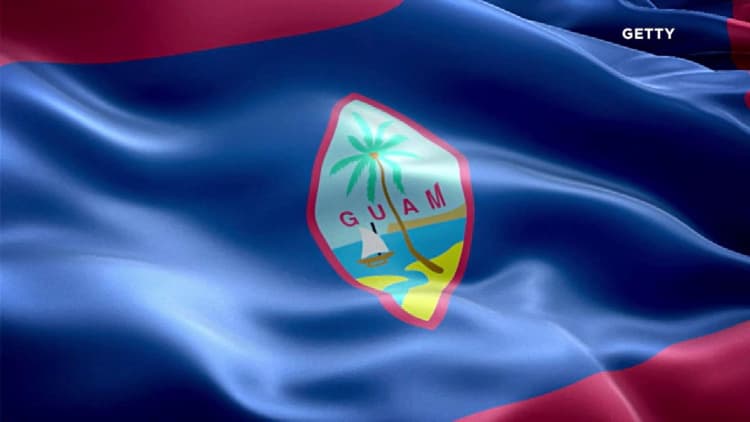
Guam's government is giving sound advice for surviving a nuclear disaster, says one expert.
The government of the U.S. territory issued a two-page fact sheet on Friday, after North Korea vowed to launch an "enveloping strike" in the waters around the Pacific island.
It recommends doing things such as making lists of nearby concrete buildings that could serve as shelters, taking cover if outside during an attack, and removing clothing that might have radiation on it.
While the idea of a nuclear attack is unthinkably frightening, the Guamanian government's preparations highlight the fact it is possible to survive some of them, if people take the right steps.
"The fact sheet looks pretty good. I think we need more of that sort of thing in the U.S. generally," said Irwin Redlener, director of the National Center for Disaster Preparedness at Columbia University's Earth Institute and a professor at the university's Mailman School of Public Health.
"Frankly, I think it is excellent," he added.
The size of the bomb North Korea appears to have developed is thought to be roughly the size of the bombs dropped on Hiroshima and Nagasaki, which would make it somewhere around 15 or 20 kilotons, Redlener said.

In contrast, it would be nearly impossible to survive the detonation of the massive multi-megaton bombs developed during the Cold War, he said.
"This is very, very different from the Cold War scenario, which was hundreds of thousands of times more powerful and frightening," he said. "It is an immeasurable fraction of what we faced during the Cuban Missile Crisis."
To give an idea of the damage a 10-kiloton bomb could cause, consider that if it were detonated in downtown New York, it would kill roughly 75,000 people immediately, with hundreds of thousands more injured by either the blast or the resulting radiation.
Anyone within a half-mile of the explosion would have only a 10 percent chance of survival — bodies very close to the explosion would be vaporized, Redlener said. Nuclear detonation can generate temperatures in tens of millions of degrees.
People outside of that but within a 2-mile radius would have a 50 percent chance of being killed instantly, and people up to 8 miles away would stand a 10 to 20 percent chance of being killed instantly.
Of course, Redlener told CNBC, these estimates can vary depending on factors such as the number of buildings in the area, whether the bomb detonates in the air or on the ground, and the weather.
"There would be an unprecedented amount of death and destruction, there is no question of that," he said. "The deaths of 75,000 people is unthinkable, but in this case there are things we can do to minimize harm."
The best thing to do if caught in a nuclear attack is to stay inside, preferably in a building made of brick or concrete.
If you are outside, and you survive the initial blast, you have 10 to 20 minutes to get to a shelter as far away from the blast as possible. That's roughly the amount of time it takes for the radioactive material from the mushroom cloud to begin falling back to the ground and spreading. It should be a place you can stay in for a 24- to 48-hour period until authorities can give instructions.
The mere contemplation of a nuclear attack is horrifying, but it may be a good time to have a needed conversation many public officials are normally reluctant to have, out of concern over stoking public fears.
"In some ways this is an opportunity to talk to people around the country about what they should do in the unlikely event that something did happen," he said.
WATCH: Guam's governor says N. Korea talk no threat



